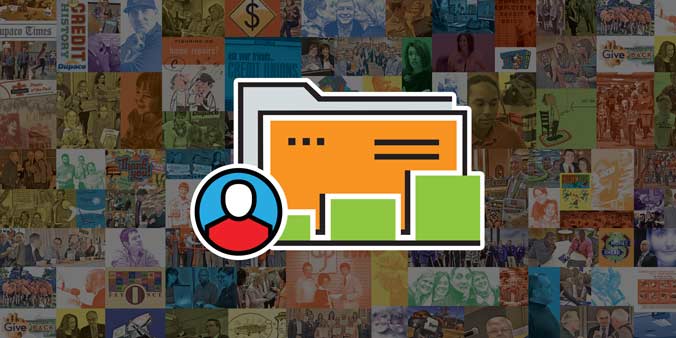
4 challenges of choosing a career … and what to do about it
Choosing a career path is a big deal.
Even if you don’t consider yourself career-driven, your choice of vocation inevitably influences your lifestyle. And income is only part of the equation. Your career also might determine where you live, who you meet and the activities you have time for.
The choice can feel daunting. But reflecting on your career goals—and how you define success—is a good place to start.
Here are four reasons why choosing a career is challenging (and what you can do about it):
|1| Because careers can’t be prescribed
Did you ever have to take one of those career aptitude tests in school or online? Do you remember what your result was back then and whether it holds true?
Despite your Facebook feed’s desperate attempt to convince you otherwise, it takes more than an online personality test to figure out your ideal career.
We often expect our perfect career to be prescriptive, as though there’s a single perfect job for each combination of skills: “Oh, so you’re a people person with great communication skills? You should be a sales manager!”
The truth is that the link between your abilities and the career that’s right for you is a lot more complicated.
The same set of skills and interests (a steady hand and a love of art, science and technology) can be a springboard for completely different career paths (a digital artist or a neurosurgeon).
It’s also important to note that interests can be enjoyed and actively developed outside of your day job. So maybe the person in our example becomes a wildly successful veterinarian who creates oil paintings on weekends.
Career aptitude tests can help generate ideas, but don’t let a simple quiz have the final say.
The takeaway: A career path doesn’t have to be a perfect translation of your unique signature of experience, skills and interests for you to be happy and successful.
|2| Because of career choice overload
There are hundreds of thousands of occupations to choose from, and more are created every day to keep up with new demands and technologies.
Many lucrative career fields today didn’t even exist 15 years ago. You might be a good match for a job that hasn’t been invented yet!
The sheer amount of career paths available can cripple your decision-making process. And when you do finally decide, doubt starts to creep in.
What if you had gone with that other option? The fear of missed opportunities can be overwhelming.
The takeaway: We all want reassurance that we’ve made the best possible decision. But that requires a lot of comparison, analysis and headspace. Instead, define your goals and use them to guide your decision-making. Focus on meeting your career criteria without worrying about the possibility of there being something better.
|3| Because “occupationism” is everywhere
“Occupationism,” a relatively new term, describes an age-old concept: Discriminating against someone based on their career.
Even if you don’t judge others based on their job, you might have witnessed occupationism in conversations with friends or family who use job titles as shorthand for how successful or educated someone is. Doctors and lawyers seem to be the go-to stereotype in these situations.
Occupationism might have even affected your career choices in the past if you’ve ever felt the need to choose a job based on its prestige, not on your genuine interest in it.
On the surface, occupational prestige seems to be linked to money, success and purpose. But it’s possible to achieve all three of those in any given field.
The takeaway: Career stereotypes are pervasive, but that doesn’t mean you have to buy into them. Define your own success.
|4| Because it’s easier to be passive
Choosing a career isn’t something we see a lot because most career choices are made “by default.”
Think back on your choice of after-school activities, high school electives and even your college major. The odds are that those choices resulted from a combination of pressure from your parents, influence from your friends, pursuits based on your interests and maybe a little bit of occupational prestige.
It’s highly unlikely that you approached intramural volleyball from a perspective of how it would factor into your career path 10 years down the line.
All this isn’t to say that every single activity needs to come from the perspective of career building. It just illustrates how easy it is to coast on others’ expectations of us rather than actively making decisions.
Acknowledge that choosing a career path is important and each decision deserves your thought and energy.
The takeaway: Get to know yourself. You’ll find that it will help you make career decisions that are in your best interest. You might also find that you’ll be less likely to follow the pack blindly.
And remember …
Finding your dream career is challenging on its own, and only made more difficult by others’ expectations and our biases.
Be mindful of your goals. Any job that helps you achieve them is a benchmark for success.
Interests and skills change and develop over time, so the need to make and reassess your career goals continues through high school, college and beyond.


